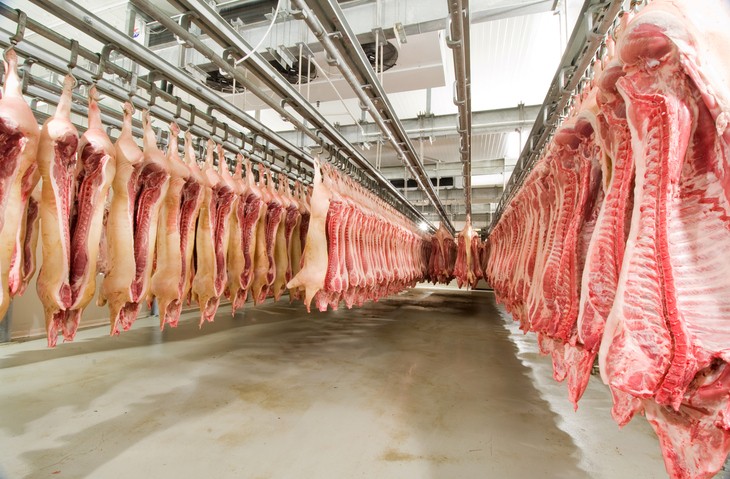ImpactAlpha, Sept. 5 – The growth of Beyond Meat and other alternative protein sources underscores the sustainability challenges of animal meat and dairy suppliers. An update to the Coller FAIRR Protein Producer Index shows that two-thirds of 60 publicly-listed meat and dairy producers are at “high risk” on most factors tracked by the index, including greenhouse gases, deforestation and water use. The producers’ poor performance puts major food brands at risk of falling short of their own sustainability commitments, says FAIRR, a $16 trillion investor network.
Take Walmart’s goal of zero net deforestation in its supply chain by 2020. The index found that two suppliers, Sanderson Farms in the U.S. and Cranswick in the U.K., have no deforestation policy. Juan Salazar of $260 billion BMO Global Asset Management, said the message from investors is “The food industry must find better answers to the business risks it is facing from more extreme weather patterns and increasing water scarcity.”
- Alternative boom. The index found that 15 of the 60 publicly traded animal protein producers have investments in plant-based proteins or other alternative meat and dairy products (up from five last year). Diversifying to also “produce alternative proteins presents an opportunity to mitigate risks while preparing for market and technological disruption,” says FAIRR. Top alternative protein performers include Maple Leaf Foods in Canada, Tyson Foods in the U.S., and China-based Mengniu Dairy.
- Aquaculture opportunity. Three of the five highest performers in the index are aquaculture companies, including top-ranked Norwegian fish farmer Mowi. Farmed fish is less resource-intensive than land-based animal agriculture, but impacts must still be managed. None of the Asian aquaculture companies, for example, disclose how much antibiotics they use.











